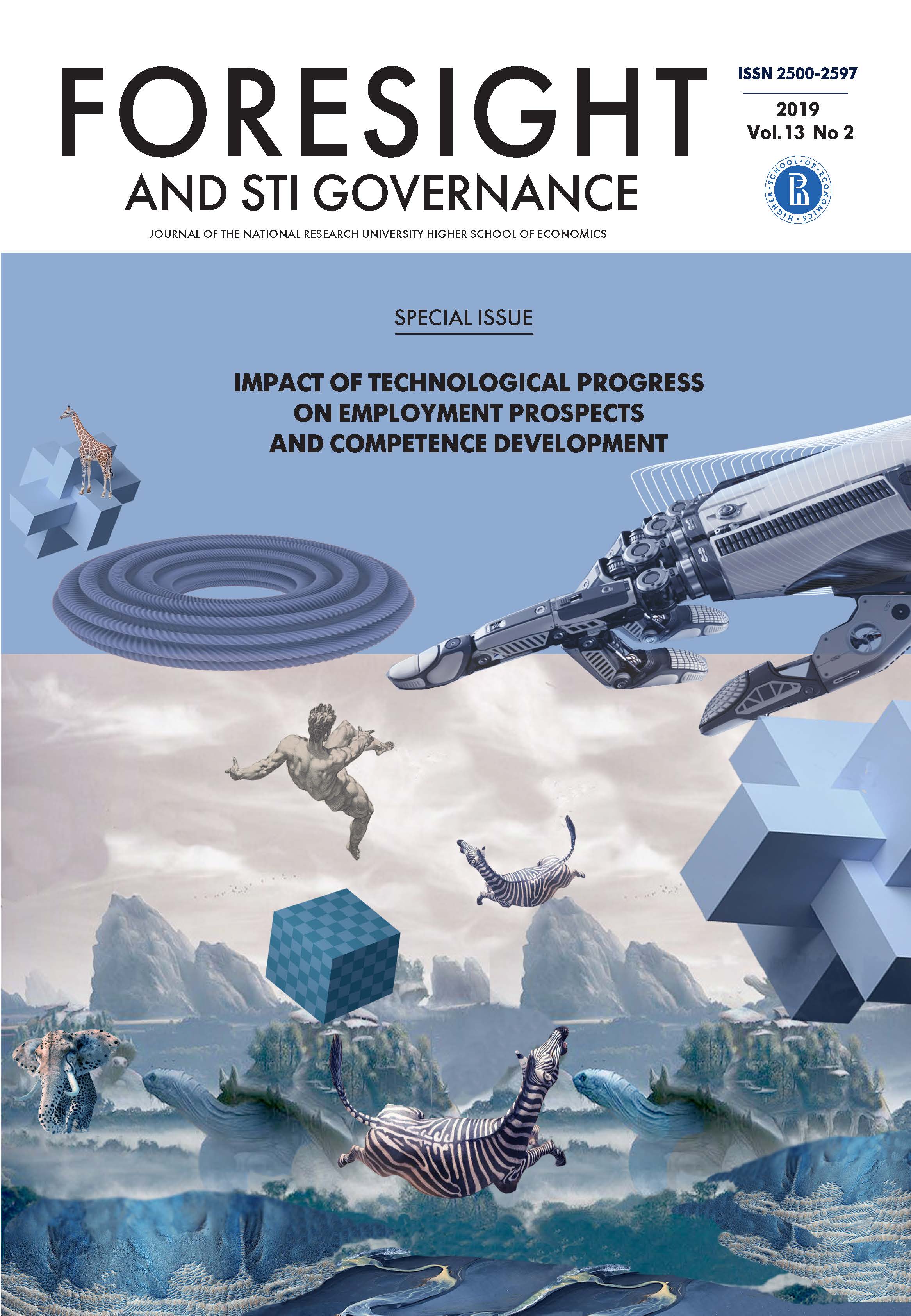Abstract
To thrive in the modern world, people need to make sense of complex issues and deal with uncertainty. This requires a different kind of knowledge than schools are teaching. We argue that cultivating a theoretical turn-of-mind is critical for identifying causal relationships and patterns within any phenomenon and trend. In this paper, we introduce a course designed to engage students in an “intellectually honest” version of scientific theory building. We describe four theory-building competencies that students developed as a result of their participation in the course and highlight the features of instruction that may have played a key role in this development. We describe how a particular feature of the course - the theory-building discussion - helped students refine their thinking and we outline the moves the teacher used to facilitate the refinement process. We conclude that learning to construct theories is beneficial even for students who are not tending towards careers in science, as it helps to refine everyday thinking, and, in a broader sense, build human capacities to develop solutions for the complex problems we face across economics, environment, health, and many other domains.
References
Atkins P. (2010) The laws of thermodynamics: A very short introduction. Oxford: OUP Oxford.
Bang M., Medin D. (2010) Cultural processes in science education: Supporting the navigation of multiple epistemologies // Science Education. Vol. 94. № 6. P. 1008-1026.
Bang M., Warren B., Rosebery A.S., Medin D. (2012) Desettling expectations in science education // Human Development. Vol. 55. № 5-6. P. 302-318.
Bruner J.S. (1977) The process of education. Cambridge, MA: Harvard University Press.
Chi M.T., Feltovich P.J., Glaser R. (1981) Categorization and representation of physics problems by experts and novices // Cognitive Science. Vol. 5. № 2. P. 121-152.
Collins A. (2017) What’s worth teaching: Rethinking curriculum in the age of technology. New York: Teachers College Press.
Devaney R.L. (1992) A first course in chaotic dynamical system: Theory and experiment. Reading, MA: Addison-Wesley Publishing Co.
Devlin K. (2012) Introduction to mathematical thinking. Palo Alto, CA: Keith Devlin.
Di Sessa A.A. (1991) If we want to get ahead, we should get some theories // Proceedings of the Thirteenth Annual Meeting of the North American Chapter of the International Group for the Psychology of Mathematics Education / Ed. R.G. Underhill. Vol. 1 (Plenary Lecture and Reaction). Blacksburg, VA: Virginia Tech. P. 220 -239.
Di Sessa A.A. (2014) The construction of causal schemes: Learning mechanisms at the knowledge level // Cognitive Science. Vol. 38. № 5. P. 795-850.
Einstein A. (1936) Physics and Reality // Journal of the Franklin Institute. Vol. 221. № 3. P. 349-382.
Feyerabend P.K. (1993) Against Method. London: Verso.
Gentner D. (1983) Structure-mapping: A theoretical framework for analogy // Cognitive Science. Vol. 7. № 2. P. 155-170.
Gentner D., Colhoun J. (2010) Analogical processes in human thinking and learning // On Thinking: Vol. 2. Towards a Theory of Thinking / Eds. A. von Muller, E. Poppel, B. Glatzeder, V. Goel, A. von Muller), Heidelberg, New York, Dordrecht, London: Springer, pp. 35-48.
Gick M.L., Holyoak K.J. (1983) Schema induction and analogical transfer // Cognitive Psychology. Vol. 15. № 1. P. 1-38.
Hempel C. (1974) Formulation and Formalization of Scientific Theories: A Summary-Abstract // The Structure of Scientific Theories / Eds. T.S. Kuhn, F. Suppe. Chicago: University of Illinois Press. P. 244-254.
Hempel C.G., Oppenheim P. (1948) Studies in the logic of explanation // Philosophy of Science. Vol. 15. № 2. P. 135-175.
Kolodner J.L., Camp P.J., Crismond D., Fasse B., Gray J., Holbrook J., Puntambekar S., Ryan M. (2003) Problem-based learning meets case-based reasoning in the middle-school classroom: Putting Learning by Design into practice // Journal of the Learning Sciences. Vol. 12. № 4. P. 495-547.
Larkin J.H. (1983) The role of problem representation in physics // Mental Models / Eds. D. Gentner, A.L. Stevens. Hillsdale, NJ: Lawrence Erlbaum Associates, Inc. P. 75-98.
Loewenstein J., Gentner D. (2001) Spatial mapping in preschoolers: Close comparisons facilitate far mappings // Journal of Cognition and Development. Vol. 2. № 2. P. 189-219.
Smith III J.P., diSessa A.A., Roschelle J. (1994) Misconceptions reconceived: A constructivist analysis of knowledge in transition // Journal of the Learning Sciences. Vol. 3. № 2. P. 115-163.
Suppe F. (1972) What's wrong with the received view on the structure of scientific theories? // Philosophy of Science. Vol. 39. № 1. P. 1-19.
Suppe F. (1974) The search for philosophic understanding of scientific theories: Introduction // The structure of scientific theories / Eds. T.S. Kuhn, F. Suppe. Chicago: University of Illinois Press. P. 244-254.
Swanson H. (forthcoming) Refining everyday thinking through scientific theory building // Deeper learning, communicative competence, and critical thinking: Innovative, research-based strategies for development in 21st century classrooms / Ed. E. Manalo. Abingdon-on-Thames: Routledge.
Swanson H., Collins A. (2018) How failure is productive in the creative process: Refining student explanations through theory-building discussion // Thinking Skills and Creativity (Advanced online publication). Режим доступа: , дата обращения 04.02.2019. DOI: https://doi.org/10.1016/j.tsc.2018.03.005
Toulmin S.E. (1958) Introduction to the Philosophy of Science. Watford: William Brendan and Son.
Von Glasersfeld E. (1991) Abstraction, re-presentation, and reflection: An interpretation of experience and Piaget's approach // Epistemological foundations of mathematical experience / Ed. L. Steffe. New York: Springer. P. 45-67.
Warren B., Ballenger C., Ogonowski M., Rosebery A.S., Hudicourt?Barnes J. (2001) Rethinking diversity in learning science: The logic of everyday sense?making // Journal of Research in Science Teaching. Vol. 38. № 5. P. 529-552.
Wilensky U., Rand W. (2007) Making models match: Replicating an agent-based model // Journal of Artificial Societies and Social Simulation. Vol. 10. № 4. Article 2. Режим доступа: http://jasss.soc.surrey.ac.uk/10/4/2.html, дата обращения 04.02.2019.

This work is licensed under a Creative Commons Attribution 4.0 International License.

